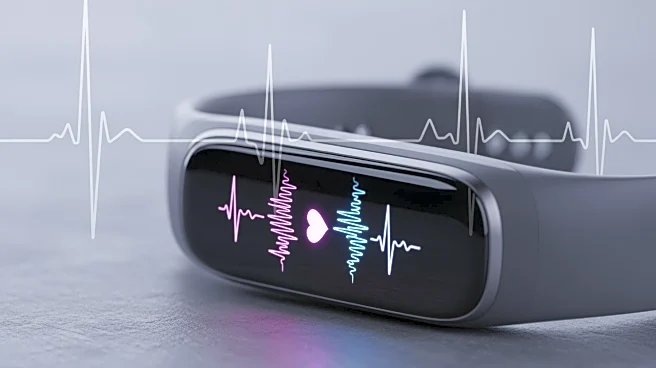What's Happening?
A study utilizing wearable devices has gathered extensive data on heart rate variability (HRV) in the Chronic Renal Insufficiency Cohort (CRIC). The research highlights sex- and disease-specific modulation
of HRV, particularly in relation to diabetes and kidney damage. The study found that beta blocker use was associated with increased HRV, aligning with increased parasympathetic activity. The findings suggest that HRV metrics could predict future cardiovascular disease (CVD) events and other clinical outcomes. The study's design involved participants wearing BioPatch devices for at least two circadian cycles, enhancing the detection of rhythmic features and applicability to the general chronic kidney disease (CKD) population.
Why It's Important?
Heart rate variability is a crucial indicator of cardiovascular health, and its assessment through wearable technology offers a non-invasive method to monitor patients with CKD. The study's findings could lead to the development of digital biomarkers for CVD management, improving patient outcomes through personalized health monitoring. As CKD patients are at higher risk for cardiovascular complications, understanding HRV patterns could inform treatment strategies and potentially reduce mortality rates associated with low HRV.
What's Next?
Future research may focus on the time-specific features of HRV and their association with renal function, CVD events, and mortality. The study sets the stage for exploring how wearable technology can be leveraged to monitor cardiovascular health in CKD patients, potentially leading to new clinical guidelines and interventions. As wearable devices become more prevalent, their integration into healthcare systems could revolutionize patient monitoring and disease prevention strategies.
Beyond the Headlines
The use of wearable technology in health monitoring raises questions about data privacy and the ethical implications of continuous health tracking. Ensuring that patient data is securely managed and used responsibly is crucial as digital health tools become more integrated into clinical practice. Additionally, the study highlights the potential for wearable devices to provide insights into circadian rhythms and their impact on health, offering new avenues for research in chronobiology.










